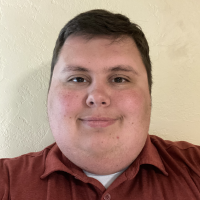Humanities, engineering students come together for global internship
Humanities and engineering students at Ohio State recently completed a week-long internship alongside the University of Osaka and Japanese robotics company OTC Daihen, tackling issues facing the future of manufacturing.
In addition to OTC Daihen, which served as the host company for students, the program was sponsored by the Department of East Asian Languages and Literatures (DEALL) in the College of Arts and Sciences, the Department of Materials Science and Engineering in the College of Engineering, and the University of Osaka’s Joining and Welding Research Institute in its first coupling internship program with a U.S.-based university. This was the second year of Ohio State’s participation in this collaborative internship.
“A coupling internship is based on this principle of bringing together humanities students and engineering students,” said Naomi Fukumori, an associate professor in DEALL and the director of Ohio State’s Institute for Japanese Studies.
Four students from Ohio State and four from the University of Osaka were split into two teams and tasked by OTC Daihen with creating a presentation based on the theme of “The Future of Work in Manufacturing – Skills, Culture and Technology.” Students from Ohio State included Japanese majors Avian Eyre and Jacob Stange, who are also majoring in political science and chemical engineering, respectively, and welding engineering PhD candidates Andrew Tong and Zenan Zhang under the supervision of Wei Zhang, professor of materials science and engineering.
Joining them were students Hatsune Masuda, Kana Miyamoto, Airi Okaguchi and Mina Osada, along with Associate Professor Mihoko Katsumata, from the University of Osaka.
Students met in person for the first time on Aug. 10 at OTC Daihen’s U.S. headquarters in Tipp City, Ohio. After a day of training, they spent the next four days learning about the company and conducting interviews with staff. The teams then spent two days preparing for a final presentation on Aug. 18, bringing the program to a conclusion by presenting their findings to representatives from Ohio State, the University of Osaka and OTC Daihen.
“I just light up thinking about what I witnessed at the final presentation,” Fukumori said. “I think both OTC Daihen and the participants convincingly emphasized the importance of communication skills, and I was just really impressed by the professionalism and maturity displayed by the students.”
Students addressed issues facing the future of manufacturing such as attracting future generations to the field and the rise of AI in manufacturing, with solutions ranging from increased social media presence to AI integration with customer service. Another focus was breaking down cultural barriers that can exist in the field, with students proposing exchange programs between employees based in the United States and Japan.
DEALL Department Chair Patricia Sieber said the students were able to break complex problems down and offer viable solutions in a field that most had just been introduced to.
“Their prior preparation, both in our department and also in their other major, helped them to develop the necessary intellectual flexibility to tackle this in a way that I think was valuable for the company,” she said. “There were real takeaways for everyone.”
In addition to gaining insight into manufacturing, this internship also helped forge deeper communication skills as the teams worked to overcome language barriers while preparing their presentations. Fukumori said students studying Japanese made for the best participants for this internship, as this experience afforded them the opportunity to expand on their Japanese language skills acquired in classes.
“I sincerely thank OTC Daihen, the University of Osaka and Ohio State for being able to give me this invaluable opportunity,” Stange said. “I want to use this experience to pursue a career in engineering internationally in Japan.”
Sieber noted that students who are multilingual can often experience doubt when communicating in different languages, so it’s important to have these multicultural experiences to allow them the chance to talk with other native speakers.
“Not everybody who's multilingual necessarily feels good about that because sometimes students think, 'I know another language, but I don't know it quite as well, or maybe my English is not good enough,'” she said. “Having first-hand experience of being able to function professionally in both Japanese and English can be incredibly affirming for the students.”
This experience afforded students the opportunity not only to improve their communication skills and grow as leaders but continue their education and apply it to real-world situations they could face in their professional careers.
“To take the critical thinking skills, research skills, writing skills, presentation skills that they've learned in their classes and then apply them to a very defined project and to bring it to fruition like they did at the final presentation, this is something that is very impressive,” Fukumori said. “I think this is something that they'll certainly build on throughout the rest of their careers here at Ohio State and beyond.”

